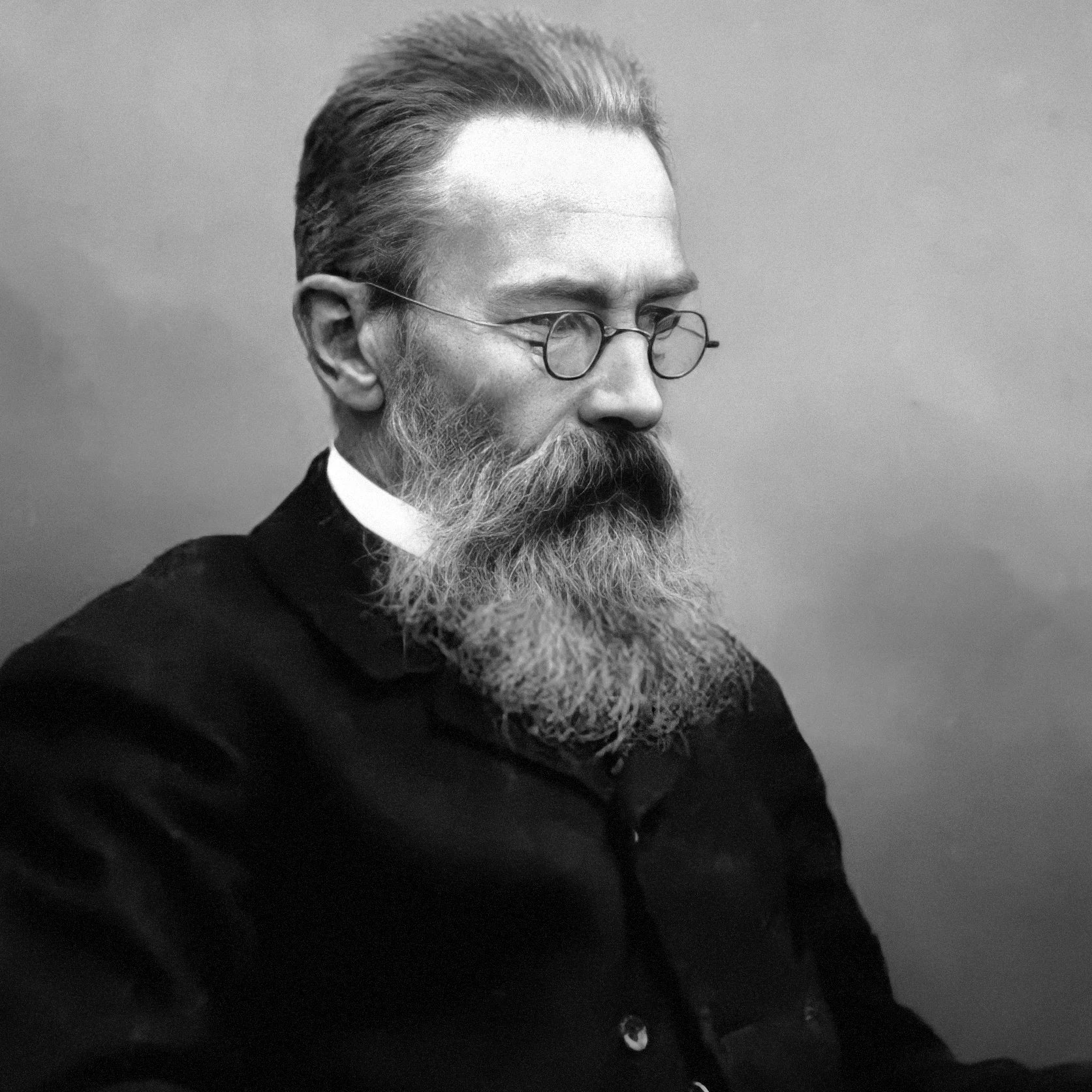Rimsky-Korsakov: Scheherazade
Composer Nikolai Rimsky-Korsakov (1844-1908)
How do you make a great composer? Do you immerse a child from birth in a musical household, marinating him in tones like a young Mozart? Do you put a young adult in the salt mines of Germanic opera houses, conducting day after day for years like Mahler? Or do you enlist him in the merchant marines with a harmonica, sending him to sea with nothing to do all day but play folktunes with a fiddle-playing fellow sailor?
Well, that unlikely last scenario is the one that worked for Nicolai Rimsky-Korsakov. Starting in the Black Sea, 18-year-old Rimsky-Korsakov sailed through the Mediterranean to England, where he picked up an American bunkmate named Thompson. Thompson and Rimsky formed a two-person jam band, travelling to New York, Washington, and even Niagara Falls together, thence down to Rio de Janiero and back to Russia.
Those experiences – seeing the countries of the world and meeting them through music – were inspiration enough to drive Rimsky to become a self-taught master of composition and orchestration (his textbook on the latter subject is still in print). Like that of many autodidacts, Rimsky’s mastery may well have exceeded what he’d have acquired in the academy, and before turning 30 he was teaching at the St. Petersburg Conservatory (in addition to serving in the Naval Reserve; he taught class in his full dress uniform).
Scheherazade is Rimsky-Korsakov’s most popular work, and as fine a piece of musical storytelling as you’ll ever encounter. A “Symphonic Suite,” its four movements depict tales from the 1,001 Nights, tales told by the ingenious Queen Scheherazade to her uxoricidal husband, Sultan Schariar, who puts his wives to death after their first night together; Scheherazade leaves her bloodthirsty husband in such suspense each night that he forestalls her death by one more day to find out what happens; after 1,001 such evenings, the Sultan sees the error of his ways, reverses his death sentence, and the couple lives, presumably, happily ever after.
Rimsky links all of the four movements with a recurring violin solo, as the voice of Scheherazade introduces each tale before the full orchestra takes it up. “The Sea and Sinbad’s Ship” is followed by another maritime story, “The Kalendar Prince.” A gentle love story comes third, while Sinbad and his ship make a reappearance in the final movement, interrupting the great festival in the fabled city of Baghdad.
In Scheherazade Rimsky-Korsakov mines the music of the Arab world for colorful melodic turns and harmonies and engaging rhythms, painting a gleefully Orientalist picture of the Arab world as seen through Russian eyes. Almost every instrument of the orchestra gets to show off, from roaring brass and percussion to delicate woodwind solo cadenzas, and of course those glorious violin solos. It’s no wonder the self-taught sailor became one of the most celebrated figures in Russian music.
See a performance
Hear Scheherazade
Chris Vaneman is the Director of the Petrie School of Music and Associate Professor of Flute at Converse College. Chris frequently leads the Spartanburg Philharmonic pre-concert lecture series “Classical Conversations,” and occasionally performs as a substitute flutist in the orchestra.

